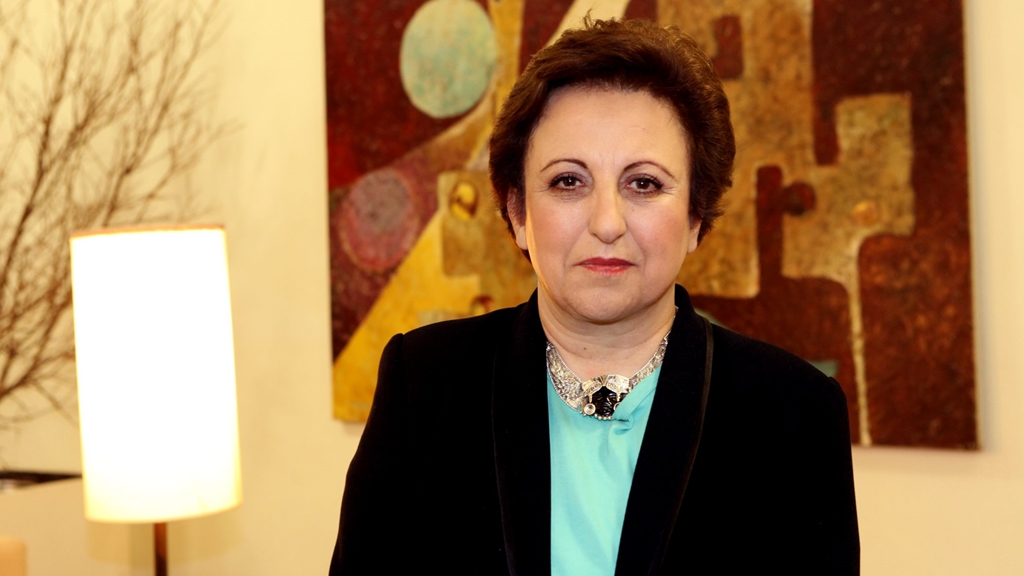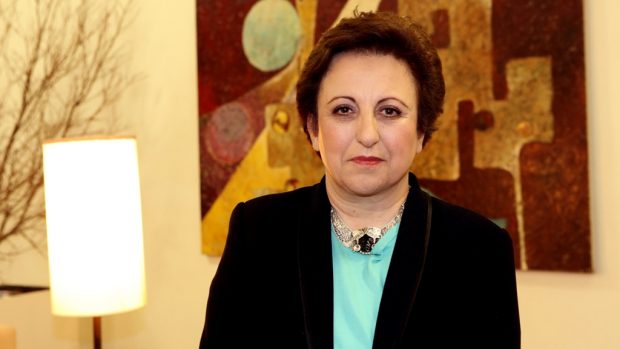
Shirin Ebadi: 71 years as an activist
She lives in the hearts of the oppressed and in the minds of millions who are her admirers— she is Shirin Ebadi.
People refer to her as the 2003 Nobel Peace Prize laureate, Iranian lawyer, human rights activist, and former lawyer. Just as the various titles suggest, she is a woman who can not be identified with a single description. Her name is synonymous with bravery, sacrifice, risk, and respect. Her story can not be captured into a few paragraphs or even a book and it will be ongoing as long as she is alive.
The international community is currently raising questions about the human rights of Iranian women in various ways. How do you evaluate this movement of the international community?
The 1979 Iranian revolution has led women to lose a lot of rights and face a lot of discriminatory laws. Since Iranian women are educated to the extent that more than 60 percent of students are female, therefore, they could not tolerate this apparent discrimination, opposing them ever since the beginning. This opposition is being expressed in any way at any time. Most recently, young girls came to the streets and took off their headscarves in opposition to the veil, and this symbolic move has been able to attract the attention of the International Convention on the Elimination of All Forms of Discrimination against Women, and international media began to report on human rights abuses of Iranian women. This issue is very important because international pressure forces the Iranian government to respond positively to the rights of women.
Many people have the perception that you are absolutely fearless because you have done many bold deeds that ordinary people can not imagine doing. How did you feel when you read plans for your execution with your own eyes? Was it fear you felt or perhaps anger?
When I read that my murder order was given, I felt a sense of sadness instead of anger or fear. I was only saddened by the fact of how the Iranian government could possibly go against a human rights defender who has no purpose other than helping people. But this did not prevent me from continuing my work, and I continued to work like I did in the past.
Human rights movements are rapidly spreading all over the world, and many people want to participate. How do you suggest that people who are yet to hold high positions in society such as students or those in their early years in society participate in human rights movements?
Human rights are not limited to a few articles of the law in books— you do not have to be a lawyer like me to participate. It is instead culture and a way to have a healthier society. The most important point is that those who take steps in this way must deeply believe in it, and be ready for consequences that may potentially result. Do not be afraid.
The local press call you “the next president of Iran” because they believe that as the leader of the country, you will fight for greater rights. What is your opinion on this? If the opportunity of being able to return to Iran safety is given, would you run for president?
I maintain a stern position that I do not intend to enter political power. In general, a human rights defender should not be in government because the duty of human rights defenders is to stand outside the political power, look at it with an objective view and identify the problems of the government. Human rights activists must act in the interests of the people in solving the problems of the government, therefore essentially no human rights defender should be president. As soon as I can continue my human rights activities in Iran as a lawyer, I will go immediately, but as I said, I have no intentions on working in the government.
What does the Nobel Peace Prize mean to you?
The Nobel Peace Prize to me is a recognition of me as an individual, but an appreciation of international human rights defenders as well as women’s efforts to achieve their human rights.
In the past, you have claimed that gender inequality is a result of patriarchal culture. However, if patriarchy is deeply intertwined with Iran’s history and culture, how must we approach solving it?
To change culture requires time and, education is the most important means of correcting wrong traditions. Laws too can accelerate the course of cultural evolution. Unfortunately, the Iranian laws passed after 1979 not only improved the patriarchal culture but also exacerbated this culture by discriminating between men and women.
Ebadi lived in Tehran, but she has been in exile in the UK since June 2009 due to the increase in persecution of Iranian citizens who are critical of the current regime. There are many things that Shirin Ebadi has sacrificed and lost as a result of her exile: her home, culture, and close friends. Despite all the condemnations and criticism she has received from Iran, she never ceases to give up on her country.
By YeJi Chun, Seoul International School



